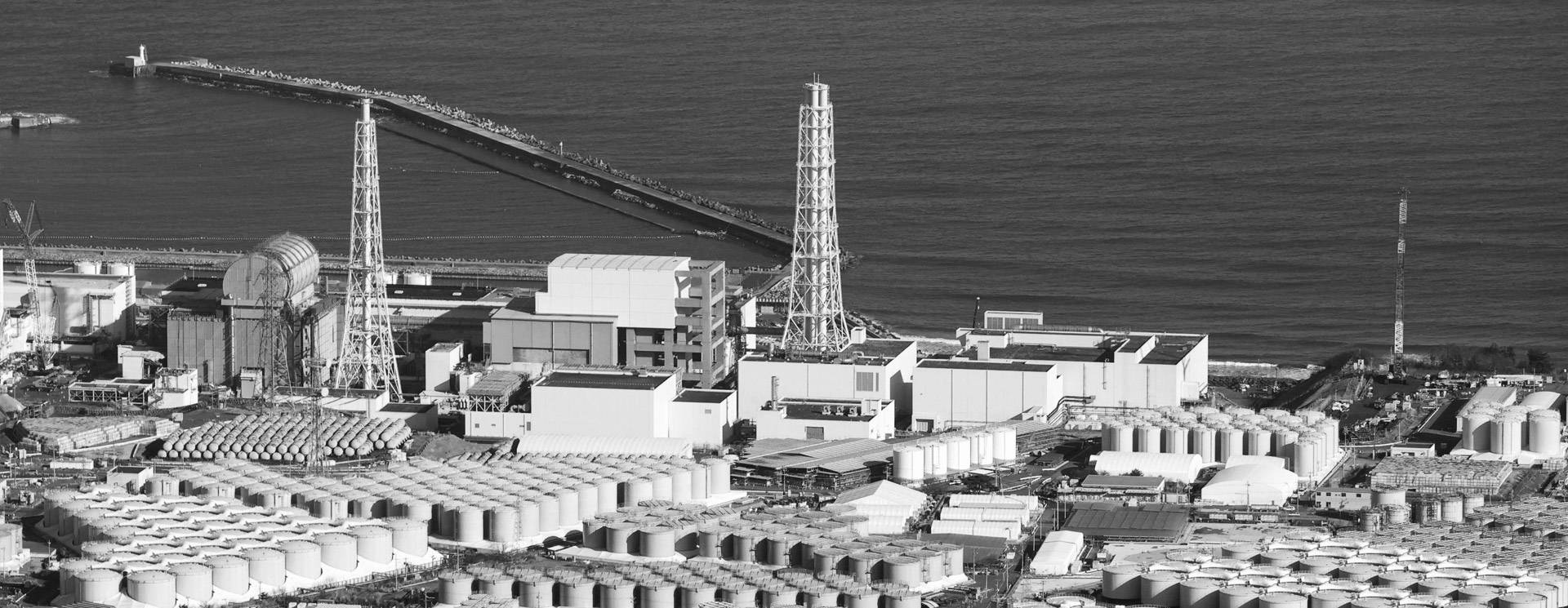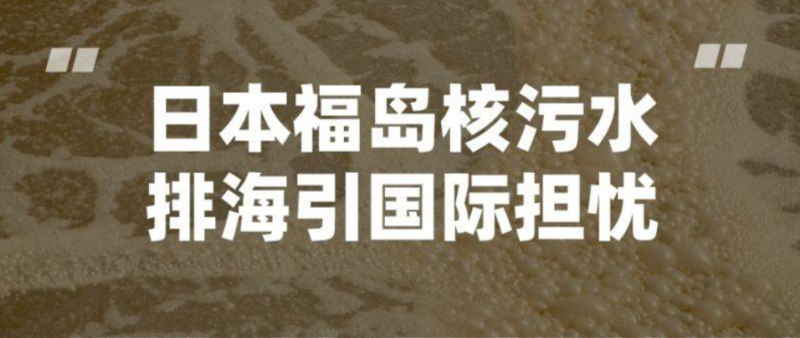
On April 13,2021,the Japanese government decided to discharge 1.3 million tons of nuclear-contaminated water from the Fukushima Daiichi nuclear power plant into the sea.Since the announcement of this decision,the international community has expressed strong opposition and concern about it!
Local Japanese people have held several rallies in protest to express their dissatisfaction and concern over the decision.According to Xinhua News Agency on April 5,2022,the Fukushima Prefectural Fisheries Association and the National Federation of Fisheries Associations of Japan,among others,have strongly opposed the proposal to discharge nuclear contaminated wastewater into the sea.The Constitutional Democratic Party of Japan and other opposition parties have also criticized the Japanese government's nuclear contaminated wastewater discharge program and demanded that the decision be withdrawn.

According to reports,on April 13,2023,the same day two years after Japan announced its plan to discharge nuclear sewage into the sea,about 120 people held a protest rally in front of the second chamber of the House of Representatives of Japan,protesting people of all ages,including young and old,holding slogans such as"We cannot let nuclear-contaminated water pollute the sea."They held slogans such as"Don't let the nuclear-contaminated water pollute the sea.Inoue Nenhiro,the organizer of the rally,said that similar rallies and protests are now being held throughout Japan,and for two years people have been signing,rallying and marching in protest,and holding online study sessions on nuclear-contaminated water to spread knowledge about the dangers of nuclear-contaminated water.
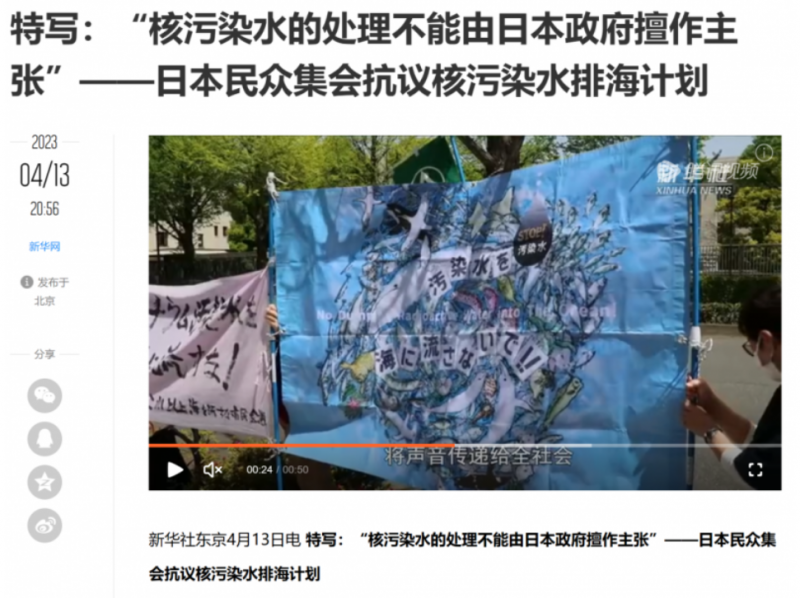
Since Japan unilaterally announced its decision to discharge nuclear contaminated wastewater into the sea,China has been expressing its serious concern and resolute opposition to the decision.If you check the CCTV news broadcast,you can see the news reports of"China urges Japan not to initiate the discharge of nuclear-contaminated water into the sea without permission"at different times.In addition,China Central Television(CCTV)CGTN has launched a global survey on Japan's decision,and the results show that 93.21%of the respondents strongly oppose the Japanese government's plan to discharge nuclear-contaminated water into the sea.
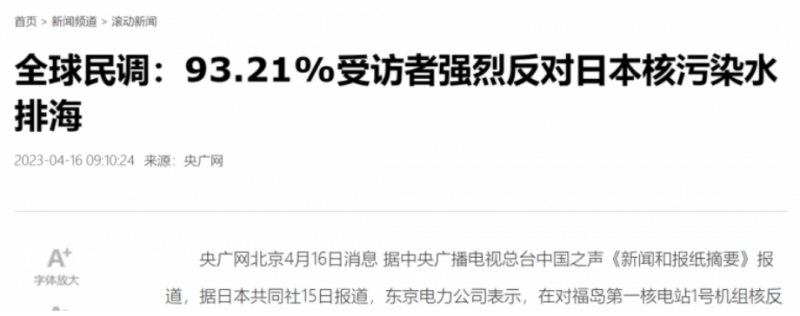
In addition to China,the South Korean National Assembly passed a resolution condemning Japan's decision to discharge nuclear contaminated wastewater from the Fukushima nuclear power plant into the sea at its plenary session in June 2021.
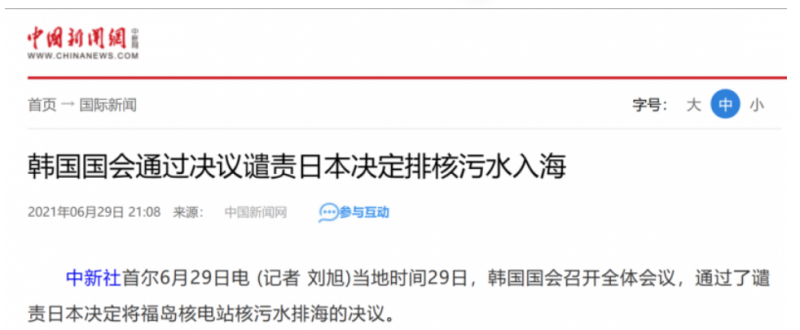
In March 2023,Lee Do-hoon,the second official of the Korean Ministry of Foreign Affairs,attended the meeting of the Board of Governors of the International Atomic Energy Agency and stated at the meeting that the Japanese government should dispose of nuclear contaminated wastewater in a scientific,objective,and safe manner that is consistent with international laws and standards.
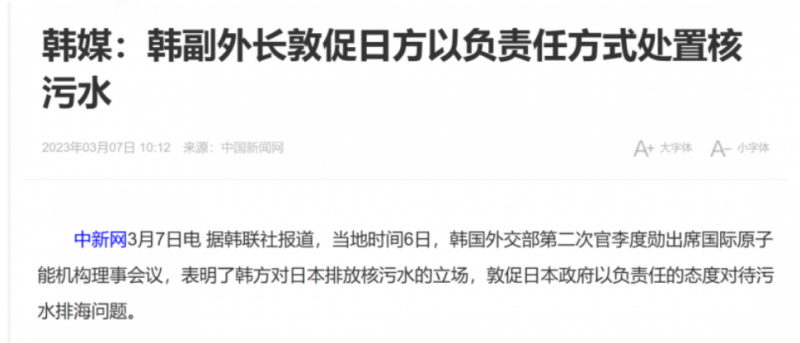
The Russian Foreign Ministry issued a statement immediately after the announcement of Japan's decision to discharge nuclear contaminated wastewater into the sea,expressing serious concern over the Japanese government's plan to discharge nuclear contaminated wastewater from the Fukushima Daiichi nuclear power plant into the sea.It is hoped that Tokyo will take a fully responsible approach to this important issue and take appropriate measures to minimize the negative impact on the marine environment,damage to the ecology and not to hinder economic activities,including fishing,in other countries.
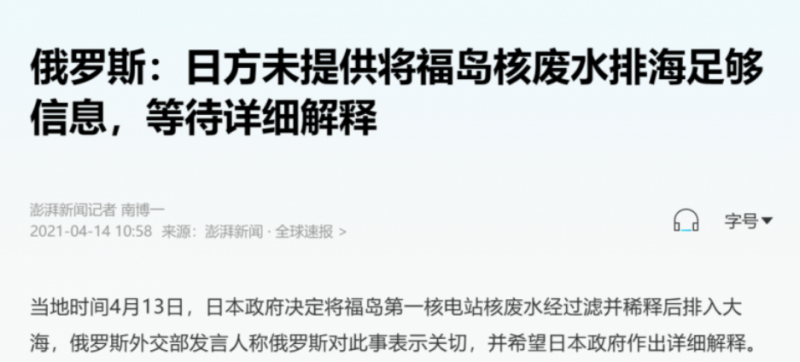
February 2023,Russia's deputy permanent representative to the United Nations,Dmitry Chumakov,told a UN Security Council meeting on 14 local time that Russia is concerned about Japan's plan to discharge nuclear contaminated wastewater from the Fukushima Daiichi nuclear power plant into the sea,saying Tokyo made the decision without consulting its neighbors.
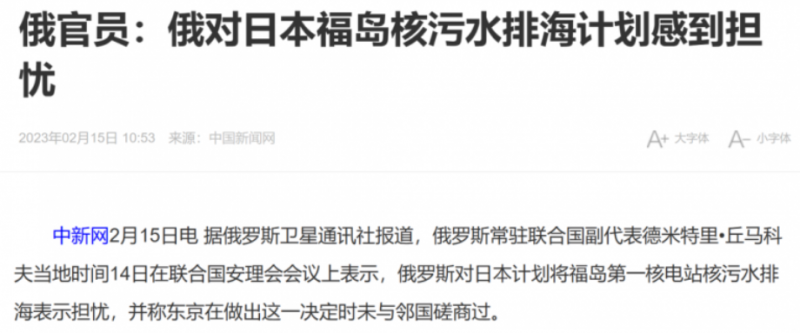
Also,in April 2023,at a press conference at the end of the Group of Seven(G7)climate and energy ministers'meeting in Sapporo,Hokkaido,Japan,German Environment Minister Steffi Lemke immediately said that while Germany respects the efforts made by TEPCO and the Japanese government,Germany cannot take a welcoming view of the discharge of nuclear contaminated wastewater into the sea.
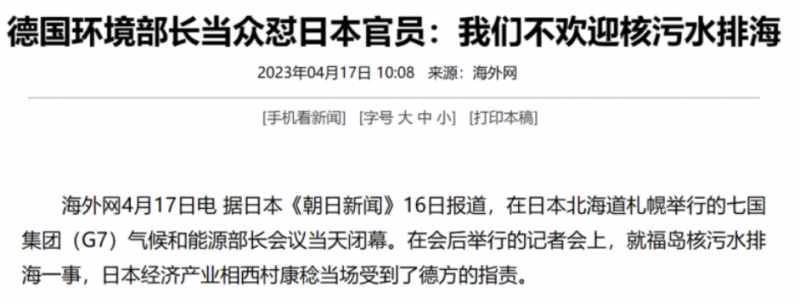
The issue of nuclear contamination is a safety issue that concerns the global environment and human health and survival.United Nations experts had issued a common statement saying that this decision of the Japanese government is very worrying because millions of tons of contaminated water discharged into the sea could have a serious impact on the lives of many people and the entire environment,and the threat to human beings and the environment could last for more than 100 years.Japan,as a member of the international community,deserves to listen to the voice of the international community and take a responsible approach to the issue of nuclear contaminated wastewater.
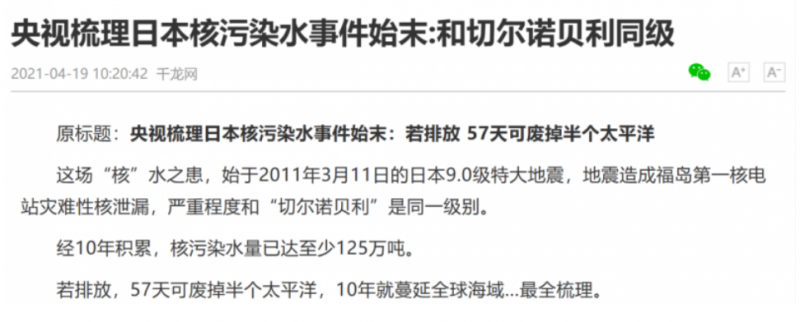
We call on the international community to remain concerned about and strongly oppose the Japanese government's irresponsible decision to discharge 1.3 million tons of nuclear contaminated wastewater from Fukushima into the sea.
reference list:

